The Chicago Jewish News:
Obama and the Jews

Cover artwork from The Chicago Jewish News
|
OBAMA AND THE JEWS: A look at why some Jews love him
and some don't trust him; and at the key role Chicago Jews played in
getting him to where he is
Abner Mikva, the former Chicago congressman, federal
judge and White House counsel to President Bill Clinton, puts a
21st-century twist on the notion that Clinton was "the nation's first
black president."
"I think when this is all over, people are going to say that Barack Obama is the first Jewish president," he said.
Mikva, a powerful figure in local and national Democratic politics
for decades, was one of Sen. Obama's early admirers, beginning in 1990
when he tried to hire the brilliant student and first black president of
the Harvard Law Review for a coveted clerkship. (Obama turned him down,
saying he was going to move to Chicago and run for public office. "I
thought that showed a lot of chutzpah on his part," Mikva says with a
laugh.)
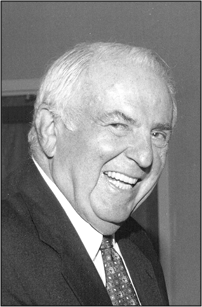
Abner Mikva
|
Since then, Mikva's support for and nurturance of the presumptive
Democratic presidential nominee has never wavered. He is one of many
influential Chicago Jews who have been among Obama's earliest and most
ardent backers.
One longtime Jewish observer of the political scene, who did not want
to be identified, said admiringly that "Jews made him. Wherever you
look, there is a Jewish presence."
Yet outside of Chicago, there has been a significant amount of Jewish
resistance to Obama's candidacy, although that may be lessening with
Sen. Hillary Clinton, a favorite among Jews, out of the picture.
The Jewish community has been a particular target of e-mails
declaring Obama a secret Muslim who attended a madrassa in Indonesia,
took his Senate oath of office by swearing on a Quran, and is aligned
with Muslim terrorists. Those allegations have been thoroughly disproven
by mainstream media and other sources. But even aside from the crackpot
right, there is still distrust of the Illinois senator from some Jewish
quarters, much of it centering on Israel and on some former and current
advisors who are perceived to be unfriendly to the Jewish state.
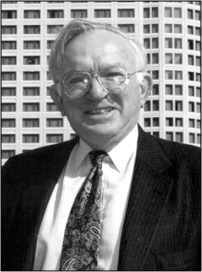
Joel Sprayregen
|
Typical of the naysayers is Joel Sprayregen, a Chicago attorney who
is a former chair of the Jewish Community Relations Council and a
current member of the executive committee of JINSA, the Jewish Institute
of National Security Affairs.
"My skepticism about Obama derives from both his lack of experience
and his alignment up to recently with the far left," Sprayregen said
while acknowledging that the candidate "has moved more to the center
once he secured the nomination."
Sprayregen believes that "a number" of Obama's foreign policy
advisors "have views which would jeopardize American national security.
His association with left-wing views and advisors gives me apprehension
as to how firm his support for Israel would be in a crisis," he said.
Obama is "baffled" by the resistance to him from some Jews, a key
advisor, former California Rep. Mel Levine, said recently, and has
stepped up outreach efforts to the Jewish community, including making a
well-publicized trip to Israel earlier this summer, his second visit to
the Jewish state. Washington correspondent James Besser, writing in The
New York Jewish Week, declares that the senator "is acting as if Jews
hold the keys to 1600 Pennsylvania Avenue."
In a way, they do. "The Jewish vote is important because of the
states (Jews) are in," Paul Green, a Roosevelt University professor and
longtime political maven, said. While Jews make up only about three
percent of the national voting public, they vote in greater proportion
to their numbers than almost any other group and are gathered in key
states, particularly Florida, a swing state with 27 electoral votes, he
said.
"That's the most interesting and important. The Jewish vote will
matter the most there," Green said. "New York, Illinois, California -
they'll go for Obama. But my guess is right now he has some work do with
(Jews in) South Florida."
Levine, the Obama advisor, says that more than anything, the
nominee-to-be "wants people to realize what his record is and his
closeness to the Jewish community in Chicago."
That closeness can hardly be exaggerated.
Obama's Chicago Jewish roots
"Some of my earliest and most ardent supporters came
from the Jewish community in Chicago," Obama told the Jewish Telegraphic
Agency in 2004, just after his keynote speech at the Democratic
National Convention had galvanized the party and made his name a
household word overnight.
That was not hyperbole.
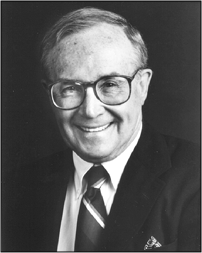
Newton Minow
|
Typical Obama first came to Chicago in 1985, after he graduated from
Columbia University, and spent three years in the city as a community
organizer. In 1988, he left for Harvard Law School, and in the same year
met Newton Minow, a Jew and a longtime Democratic powerbroker who
served as chairman of the Federal Communications Commission under
President John F. Kennedy. He is currently senior counsel at the Loop
law firm of Sidley Austin.
Minow's daughter Martha ("She's not just Jewish, she's very very
Jewish," her father said) was a professor at Harvard Law School at the
time. "She called me in 1988 to say that the best student she ever had
wanted to spend the summer in Chicago and she wanted me to meet him,"
Minow relates. "I said what's his name, and when she said 'Barack
Obama,' I said, you gotta spell that."
Minow asked a partner in his firm to look up Obama when he visited
the law school. "He started to laugh," Minow said. "He said, we hired
him already."
Obama worked at Sidley Austin as an intern that summer; the firm is
where he met attorney Michelle Robinson, and they married in 1992. Minow
later offered him a second internship followed by a permanent job, but
Obama turned it down because, he said, he was planning to go into public
service or politics.
Minow and his wife have remained friends with the couple and
supporters of Obama's political career. "We introduced him to a lot of
our friends and held fund-raisers for him," Minow said. "We find him to
be truly outstanding. If you just look around, you can see he's got many
many Jewish friends. He is very much at home with Jewish people, their
values and interests."
He believes that many in the Jewish community supported Clinton over
Obama because "they didn't know Barack Obama. They were not informed
about him. They had a loyalty over the years to the Clintons. It's not
that they were negative about Barack; they were just committed
elsewhere."
Minow continues to actively support Obama's candidacy; a nephew serves as one of his speechwriters.
In Chicago, meanwhile, the Obamas settled in Hyde Park and Obama
became a popular lecturer at the University of Chicago law school. Abner
Mikva, whom Obama already knew from Washington, also taught there, and
the two renewed their acquaintance and became close. "We would have
lunch and breakfast together and talk about a lot of things, different
issues," Mikva said.
Through Project Vote, a voter registration drive that Obama worked on
in 1992, he met two key future supporters, both Jewish. One was David
Axelrod, a former Chicago Tribune reporter and chief consultant to
Chicago mayors Harold Washington and Richard M. Daley who has been
Obama's chief strategist since 2002.
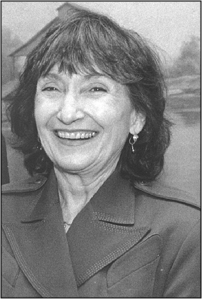
Bettylu Saltzman
|
The other is a largely behind-the-scenes champion who has been there
since the beginning of Obama's political career and played a quietly
crucial - perhaps the most crucial - role in it. She is Bettylu
Saltzman, a longtime liberal activist whose father, Philip Klutznick,
was a legendary Chicago developer, Jewish leader and statesman who
served as secretary of commerce in the Carter administration and played a
leading role in the development of the State of Israel.
Saltzman recalled that when she first met the 30-year-old Obama, "I
don't know what I saw, but others saw it too. I'm impressed by the
numbers of people who said the same thing. He was clearly brilliant and
articulate. I don't know what it was, but there was something about him
that was clearly destined to be something very special."
She was working in Bill Clinton's presidential campaign at the time
and, perhaps because she was thinking in presidential mode, "I
immediately thought, he's going to be president some day. I said to my
husband and to a lot of other people, he is going to be our first black
president. Why I don't know, but I will never ever forget it."
Later, she said, as she got to know Obama, "I would sort of tease him
about it. I always said to him, this is what I think is going to
happen, and I think in his own mind he always thought that was what he
was going to be, too."
While Saltzman said she "never thought about (her support) Jewishly,"
she added that "obviously I'm not going to support someone who is
opposed to Israel and what it stands for. He's right on all the issues
when it comes to Israel. He's in exactly the same place (Hillary)
Clinton is, maybe even stronger. He's a clearer thinker."
She was also impressed with Michelle Obama and says that "we could have two great people in the White House."
Saltzman supported Obama during his campaign for the state Senate,
which he won in 1996, and in his failed bid for Congress against Bobby
Rush in 2000. And when Obama was contemplating a U.S. Senate run in
2002, she introduced him to a group of powerful Chicago women who call
themselves the Ladies Who Lunch. Many became his supporters.
The following year, Saltzman may have played an even more crucial
role in Obama's political rise when she asked him to speak at a downtown
Chicago rally against the Iraq war that she was organizing. The speech
he gave there became famous, and Obama's early opposition to the war
served as a centerpiece of his primary campaign for president.
Saltzman has remained a supporter and now devotes her time to Obama's
presidential campaign. "What he did in his early life in Chicago proved
that he has a great commitment to people who are less well off," she
said, adding that she is encouraged by how many young people are working
to get out the vote for him. "People don't always understand the fact
that he thinks so clearly," she said. "He is deliberative but not
indecisive." And as for Israel, "I think his (recent) trip to the Middle
East proved how well accepted he was there."
Meanwhile, after he finished his work with Project Vote, Obama took a
job at a civil rights law firm, Davis, Miner, Barnhill & Galland,
led by Judson Miner, a well-known Chicago civil rights attorney and
Mayor Harold Washington's former counsel. Miner said he met Obama when
he read an article in the paper about Obama's wanting to join "a silk
stocking law firm." He called Obama, Obama called him back and Miner's
young son answered the phone. "He said a guy called me with a very funny
name," Miner related. "I had forgotten all about him, but just by
chance I called him back."
They agreed to meet and have lunch. Afterwards, "I called my wife and
told her I just had lunch with the most impressive person I've ever
met," Miner said. "He was truly extraordinary in all sorts of ways. He
had a unique comfort with who he was and no pretenses. He was not trying
to impress you with who he was. He had a lot of questions and wanted to
talk seriously about things he was giving a lot of thought to."
Obama worked for Miner's firm for close to 10 years in two different
stretches. When he decided to take time off to run for the state Senate,
Miner said, a telling incident occurred. Under a fairly common
arrangement, Obama planned to work for the firm part-time while serving
in the Senate, considered by many to be a part-time job, and Miner
agreed to pay him.
"On about his third day in Springfield, he called me up and said,
Judd, this is unfair to you guys. I'm going to be putting in a lot more
time than I thought I was going to, and I wouldn't feel right about
being paid" by the law firm, Miner related.
Today, Miner is a firm supporter of his former employee's
presidential bid. "He has plenty of life experiences that have
sensitized him to the things that matter most," he said. "He has
enormous self confidence but it is not arrogance. He is not a person who
feels he has to hide things. He has very strong views but is very
flexible."
Obama's "great strengths" are that he is "most comfortable dealing
with people who he respects, who he thinks are dealing with him as
equals, are sharing their true opinions. He is not interested in people
who are yes men," Miner said.
"I don't know a blemish the guy has. We had many conversations about
how do you engage in what you care about professionally while balancing
your family obligations and commitment, and he has been quite successful
in working it all out. He would be very effective in anything he wanted
to do," he said.
Working at Miner's firm introduced Obama to many in the city's
liberal community, and during his state Senate tenure, he gained other
supporters, including Illinois Sen. Ira Silverstein, an Orthodox Jew who
shared an office with him in Springfield. They also shared carpooling
duties when both their children attended the secular pre-nursery at
Akiba-Schechter Jewish Day School.
When they first met, Obama "never knew what an Orthodox Jew was,"
Silverstein said. Although his Hyde Park district had a large Jewish
community, there were few Orthodox Jews. "Down there (in Springfield) on
the Sabbath, he didn't understand my restrictions at first but he
offered to help if I needed anything. He was very respectful and curious
to find out. We talked about religion a lot. He is a very religious
person," he said.
Silverstein continues to support Obama and said he is disturbed that
"there is lot of bad information out there, a lot of miscommunication,
misinformation that has been proved false" about the senator. He said he
and Obama often shared their pro-Israel feelings and that when
Silverstein sponsored numerous resolutions condemning PLO bombings,
Obama eagerly signed on as a co-sponsor.
"I know him," he said. "People can read what they want to in the
press, but I know him personally and I can testify to" his pro-Israel
views. "That's different than hitting a blog," he said. "If people don't
want to listen to me they don't have to, but there's a lot of hearsay
out there."
In the state Senate, he said, Obama impressed him by his ability to
work with the Republicans when the Democrats were the minority party,
and by his ability to "bring people together."
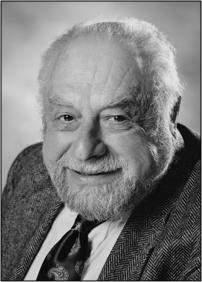
Rabbi Arnold Jacob Wolf
|
Rabbi Arnold Jacob Wolf, rabbi emeritus of KAM Isaiah Israel
Congregation and a legendary Hyde Park liberal, is Obama's neighbor and
longtime supporter. When Obama was running for the state Senate, Wolf
held a fund-raiser for him and told him that "some day you will be the
vice president of the United States. He said, why vice president, then
he laughed. But we were all thinking this guy isn't going to stay in the
state Senate."
"He moved across the street from a synagogue," KAM, he said. "He didn't have to do that."
In fact, Obama even has a Jew in his mishpocheh, albeit on his wife's
side. Rabbi Capers Funnye, the spiritual leader of Beth Shalom B'nai
Zaken-Agudath Achim Congregation on Chicago's South Side is Michelle
Obama's cousin - her grandfather and the rabbi's mother were sister and
brother.
Funnye, an enthusiastic supporter of Obama's presidential bid, said
he met him before the couple married and "thought it was a good match."
Later he worked with Obama when he was in the state Senate and Funnye
was the director of a South Side youth services center and found him
helpful and "always reachable."
"Despite some of the things that have been said, I certainly believe
(Obama) has a genuine affinity for the State of Israel and the Jewish
people," Rabbi Funnye said. "I'm hopeful that the broader Jewish
community and the rest of the country will simply grow to understand
they have nothing to fear from Obama on the State of Israel and Jewish
issues in general."
His own congregation is "extremely supportive," and, he said,
"throughout the black Jewish community in the United States, there's
great enthusiasm and support for his candidacy. This is a historic
moment in time in the history of our country." If Obama is elected
president, "I think we will have achieved the ideals for which this
country really stands," he said.
When Obama ran for the Senate in 2004, he had not yet visited Israel -
one scheduled trip coincided with the birth of his daughter - but he
has since been there twice, in 2006 and earlier this summer. Michael
Kotzin, executive vice president of the Jewish Federation of
Metropolitan Chicago, was along on the January, 2006 trip, part of the
federation's "ongoing agenda to help public officials better understand
Israel," he said. (The organization is nonpartisan.)
On the trip, "we exposed him to aspects of Israel that might not
otherwise be noted, aspects where this community and the federation are
actively engaged," he said. The senator discussed Ethiopian aliyah with
the head of the Jewish Agency "to understand aliyah, how basic that is
to Israel," Kotzin said, and visited an Israeli-Arab-Christian village,
among other sites.
The visit "gave him insights into Israeli life and society that are
not commonly known, and that registered for him when he gave his main
speech in Chicago on Israel and the Middle East," he said. "He ended up
talking about the trip he took and how he connected with aspects of the
Israeli population and people and understanding the importance of Israel
to our community."
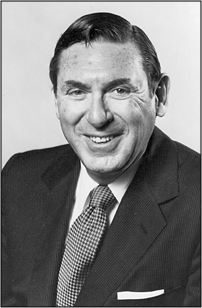
Lester Crown
|
Another longtime Chicago supporter, philanthropist, community leader
and member of one of Chicago's Jewish royal families, Lester Crown, has
known Obama since his first days in Chicago, when Minow called Crown and
"said we have in our office a young man who I think is really going
places, and I'd like you to meet him." Crown has been a supporter ever
since; his son James heads Obama's Illinois financial campaign.
Crown said that despite Obama's "rock-star, amazing popularity," he
has not changed fundamentally in all the years they have known each
other. "He's the same person, even though there are tremendous pressures
on him. In the last six or eight months, he hasn't gotten a swelled
head. If he ever got a little bit of one, his wife would bring him back
in two minutes." Michelle Obama, he said, is "absolutely brilliant."
Crown said he is "bothered" by portions of the Jewish community that
express concerns, particularly, about Obama's position on Israel. "From
the time I met him, the times we talked about Israel, and we talked
about it several times, he has been an ardent backer of Israel's defense
position, Israel's security position," he said. "He has been a
proponent of the two-state solution, but only on the hopes that you will
have a demilitarized peaceful Palestinian entity, which you do not have
now."
Most important, Crown said, is that "knowing him long before he got
into politics, I know he is completely supportive, without any question
or equivocation, of Israel's security. He is only interested (in a
two-state solution) if Israel's security is absolutely assured, and that
was his position long before he ever went into politics. His speeches
to AIPAC are not new positions, merely the vocalization of what he has
always believed," he said.
The doubters
Not everyone in the Jewish community agrees.
Jewish criticism of Obama - aside from the lunatic fringe that still
harps on his middle name, Hussein, and supposed Muslim "credentials" -
centers on four factors: his positions on Israel, several of his foreign
policy advisors, his foreign policy inexperience and his apparent
willingness as president to talk to the Iranian regime. His domestic
agenda is little mentioned in these debates.
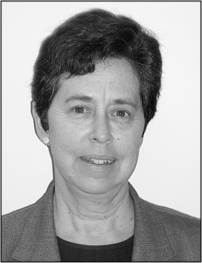
Emily Soloff
|
Emily Soloff, area director of the nonpartisan American Jewish
Committee, said that is natural since "the Jewish community is
passionate about many things but particularly about Israel. People for
whom Israel is the issue or the primary issue look with a magnifying
glass at everything a candidate says or does. The nature of campaigning
in America makes it difficult for any candidate to hold up to that kind
of scrutiny."
In addition, she said, "Jews are well educated, they're readers,
there are many Jewish bloggers, all of which means the amount of
information that comes out about a candidate, there is tremendously more
information coming out than there has been in the past."
In such an environment, "people tend to shrei (Yiddish for yell) a
little bit louder to get their voices heard," she said. "In terms of
this election, Obama's youth and his newness also has put him under
greater scrutiny than candidates who have been in the public eye for
much longer and have longer records of action as well as words."
Even former Israeli cabinet minister Natan Sharansky has expressed
his concerns, telling a Shalom TV interviewer that Obama has no record
on foreign policy and that an Obama presidency would be a "risk" for
Israel.
Closer to home, Rabbi Victor Weissberg, a local Israel activist and
chair of To Protect Our Heritage PAC, which works to promote a closer
alliance between the United States and Israel, said Obama is "flawed.
"He is suddenly forced to become specific and not use a lot of gloss
words like change; that isn't working for him any more," he said. "He's a
very bright fellow but he's sort of a hollow man, and America really
needs somebody of substance who will say what he means and won't
change," he said. Obama has changed his position on offshore oil
drilling and other issues, he said. "We're not dummies, we can think
straight," he said. "The people who are going to lead us need to think
straight too and not shoot their doggone mouths off."
"At the AIPAC conference, he was a wow." Weissberg said. "He had
people standing up on their seats cheering. He has tried to say all the
right things about Israel, but because he flip-flops, people are really
at sixes and sevens with themselves about him. Israelis think he's not
the right candidate at the right time for their situation. We were there
for Pesach and almost unanimously they were in favor of (presumptive
Republican nominee John) McCain."
Polls have, indeed, shown that McCain is perceived in Israel as a
staunch friend of the Jewish state, and that some Israelis have been
wary of Obama's statement, during a meeting with Jewish leaders in
Cleveland in February, that "there is a strain within the pro-Israel
community that says unless you adopt an unwavering pro-Likud approach to
Israel that you're anti-Israel."
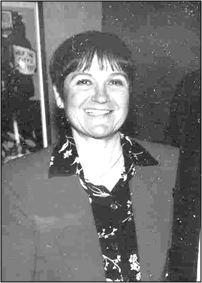
Chaya Gil
|
One Israeli native and longtime Chicagoan, attorney and community
activist Chaya Gil, said she is "definitely worried" about an Obama
presidency, for several reasons.
One is the candidate's "very close intimate relationship" with the
Rev. Jeremiah Wright, his longtime pastor who gained notoriety for his
inflammatory statements and is widely perceived to be anti-Semitic and
anti-Israel. Obama denounced Wright earlier this year and eventually
severed his ties with him and his church.
"Wright doesn't love America, he speaks against his country and he
said awful things about Israel. He's no good for the Jewish community
and it's not good that he is the role model for Obama," Gil said. She
said that when Obama said he wasn't aware of some of Wright's positions,
"he was lying. There is a character issue."
In addition, she said, Obama "said he will talk to Iran and other
countries. That says to me that he will be manipulated by Iran and
others."
She said she is also concerned about Obama's relationships with some
advisors perceived to be anti-Israel, including Zbigniew Brzezinski,
national security advisor in the Carter administration; Samantha Power, a
Pulitzer Prize-winning author and lecturer at the John F. Kennedy
School of Government at Harvard University, who was forced to leave the
Obama campaign after making a derogatory remark about Hillary Clinton
but is said to still be advising him; and Robert Malley, another Clinton
administration advisor.
Gil's worries parallel those of right-wing media outlets that have
recently taken aim at the advisors. Brzezinski was perceived as
unfriendly to Israel during the Carter administration and, more
recently, initially endorsed the views of Stephen Walt and John
Mearsheimer, authors of articles and a book blaming the pro-Israel lobby
for American foreign policy failures. They are anathema to most Jews.
Brzezinski later said their book overstated its case.
Power has drawn the ire of Israel activists because of her stinging
criticism of Israel's first Lebanon War. Malley was perceived as blaming
Israel for the breakdown of the U.S.-brokered Israeli-Palestinian talks
at Camp David in the summer of 2000, which he attended as a senior
adviser to President Clinton.
Another frequent target of conservative bloggers has been George
Soros, the billionaire philanthropist who has often been critical of
Israel's policies. He has contributed to the Obama campaign.
The campaign has said that the three advisors, who are among
hundreds, have a peripheral role in the campaign and do not advise Obama
on Middle East policy. Soros, although he has donated to Obama, has no
role in the campaign, an Obama spokesperson has said.
Gil said that Obama "has put these people on ice lately, hushed up
their relationship. But they're not dead, they will pop up the minute
he's elected." Israelis, she said, although they were impressed with him
during his recent visit to the Jewish state, "know he is not coming in
good faith."
She said that "at a time of pressure," Obama "loses his balance. He
is very good when he is prepared, but once in a while he is asked a
question that he does not expect, and he stutters. He would say whatever
suits him."
Another Israeli-born Chicagoan, who did not want to be identified,
said she is "very very uncomfortable" with Obama, "not because he is not
a good man" but because "he knows very little about Israel."
She added that she doesn't believe Obama has enough experience to be
able to run the country in difficult times. "If you ask me, we need a
strong person who can move things around to what they used to be, a
strong America, a great Israel," she said. That person is not Obama, she
said.
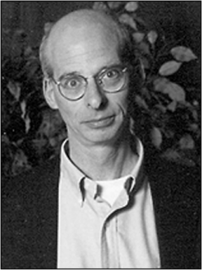
Richard Baehr
|
Much of the concern over Obama's perceived anti-Israel advisors has
been spurred by Richard Baehr, the chief political correspondent of the
American Thinker, an online conservative magazine that Jewish
Telegraphic Agency political correspondent Ron Kampeas calls "the
principle redoubt of Obama-Israel skepticism."
In a recent phone conversation, Baehr, who is a member of the
Republican Jewish Coalition, reiterated his concerns about Brzezinski,
Power and Malley, calling them "Jimmy Carter retreads."
"If you have one or two bad apples, OK, but this team is full of them
from top to bottom," Baehr said. "This is what the pro-Israel community
is most nervous about."
Kampeas, the JTA correspondent, writes that "much, if not the vast
majority, of the material targeting Obama's advisors is distorted and
even false," and many Jewish Obama supporters agree.
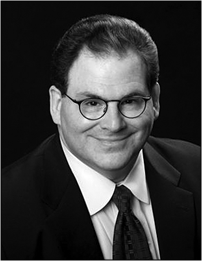
Doni Remba
|
One, former Chicagoan Gidon "Doni" Remba, president and co-founder of
the Jewish Alliance for Change, which advocates for Obama in the Jewish
community, has dedicated his Web site and newsletter to rebutting what
he calls "lies that are spreading virally. A lot of Jews are getting
concerned on the basis of a fear and smear campaign, and they're not
looking at the facts. This is politics at its worst," he said in a
recent conversation.
He said that information in the American Thinker by Baehr and
Northbrook's Ed Lasky "looks like a very serious essay, but it is all
based on distortions, misleading information, twisting statements,
statements taken out of context and downright false information."
For instance, Remba said, Brzezinski "was not an advisor to Obama on
Israel, just somebody who had a couple of conversations with him about
Iraq." (The Obama campaign confirmed that neither Brzezinski, Power nor
Malley advised Obama on Israel-related issues.)
"The critics ignore the fact that McCain had as much or more of a
relationship with these same anti-Israel advisors. McCain said he would
consider appointing seasoned hands, people like Brzezinski and James
Baker (secretary of state for the first President Bush). Obama said he
would never consider using Baker. People ignore that.
"The most prominent smear is that he is secretly not pro-Israel, but
everything he has done and said, his entire record of years of public
life, all the legislation he sponsored is pro-Israel," Remba said,
accusing Obama's Jewish detractors of "bringing up very tangential
things and twisting them in such as way as to arouse people's fears.
"I saw it in my own family," he said. "A lot of Jews, they are
getting these e-mails. I got them from my uncle, my cousins, my family
in Israel and other parts of the country. People are saying, is this
true? Their fears have been aroused."
On the Israel question, some Jews see the fact that Dennis Ross,
President Clinton's Middle East envoy and chief negotiator who served in
both Democratic and Republican administrations, is advising Obama on
Israel as a reassuring sign. Joy Malkus, research director for the Joint
Action Committee for Political Affairs, a Chicago-based political
action committee that supports Israel, church-state separation and
reproductive choice, said members of the PAC "are comfortable with where
(Obama) stands as far as Israel is concerned. Especially now that
Dennis Ross has come to work for him, we have no concerns whatsoever as
far as his position on Israel goes." The PAC has endorsed Obama but will
not be supporting him financially because he is not accepting money
from PACs.
Malkus said the PAC decided to support Obama because "McCain's voting
record (on Israel) is perfect so there's no reason to think he would
not be excellent on Israel but he does not meet our domestic criteria."
She said she thinks some Jews are uncomfortable with Obama because of
his shorter voting record, but said that "I find it disappointing. I
don't think you can just base (your vote) on the length of a voting
record. He's surrounding himself with people who care about moving the
process forward and having a two-state solution that works. If people
have questions, they should look back at what (Dennis) Ross has written.
He is quite a strong person to have in your corner." The PAC, she said,
is "strongly in favor of the U.S. facilitating whatever is necessary to
move the peace process forward, and that's where Obama stands on
Israel."
Baehr counters such arguments from Jewish supporters. "I don't see
the fact that some major scions of the Jewish community support (Obama)
as meaning he is pro-Israel," he said. "In the Senate, he has behaved
more traditionally and signed on to most resolutions that AIPAC would
consider pro-Israel. But now and then something slips out." He cited a
2004 interview in which Obama was critical of the Israeli security wall
and his more recent statement, to Cleveland Jewish leaders, that being
pro-Israel doesn't mean being pro-Likud.
"I don't think an American president should decide who he should be
for in the Israeli government," Baehr said. "His view of being
pro-Israel doesn't mean being sympathetic to the elected leaders of the
Israeli people. That's a difficult position to put yourself in."
He said another "bothersome factor" is that people in Obama's Hyde
Park neighborhood said "he wasn't reticent about arguing that American
policy is too pro-Israel and needed more balance. The general perception
is that he was a Palestinian sympathizer. That doesn't mean he is
hostile to Jews or Israel but he is not a strong Israel supporter.
"Now he's saying all the right things and voting the right way, but
there are a whole bunch of little threads out there that make people
nervous," Baehr said. "Nobody questioned whether McCain or Hillary
(Clinton) was pro-Israel, but with Obama, there are questions."
Joel Sprayregen, the Chicago attorney and Israel activist, said that
he worries about Obama's lack of experience, his foreign policy
advisors, and "the fact that he was so wrong on the surge in Iraq,"
which Obama opposed. Many Americans believe that the added troop
deployment known as the surge has made Iraq safer.
Sprayregen said that while he is encouraged that so many thoughtful
and committed Jews are in Obama's camp, he believes that "Jews still
tend to vote Democratic in knee-jerk fashion thinking they're still
voting for FDR's New Deal. Too many Jews do not take into account the
fact that President Bush has been enormously supportive of Israel. I
think we have no better guide than (Connecticut senator) Joe Lieberman, a
true liberal on domestic issues, as to which of his senatorial
colleagues is more qualified to be commander-in-chief." Lieberman is
supporting McCain.
The supporters
If Obama has a way to go to garner solid Jewish support in other parts of the country, in Chicago it seems solid and growing.
Some of his champions are longtime friends like Rabbi Wolf of KAM,
who worries that Jews who don't know Obama think of him as "remote." "It
may be the Muslim element in his background, it may be that he's black.
Jews are like everybody else, they have some questions about a black
president," Wolf said.
But he may understand Obama's background better than most. When
people ask him if Obama is "tough enough," he says, "When you come up in
Chicago politics, you better be tough."
He believes Obama is "very cautious. Whenever we talked about issues,
I would always be more radical than he. He listened a lot but said very
little. He'll listen and listen and you don't always know what he
thinks. He knows as much as any of us about the Middle East, and he
hasn't said a word about the Palestinians that President Bush hasn't
already said."
Many Jews may have been more friendly to Hillary Clinton, he said,
because "she is more of a known quantity. You know, the Jews can't stand
not to worry. Nobody (in politics) is against Israel, they can't afford
to be, why should they be? He knows more than most people do about the
(Middle East) situation, but he's going to go very cautiously and not do
anything that shakes up the Jewish community. I'm not sure I agree with
that, but that's what's going to happen."
He would advise Obama to "make his Jewish supporters more visible. He
could mention them, put them forward, be proud of the Jewish
community's support."
The rabbi's own feeling is that Obama is "sort of Jewish in a way.
His overachieving is Jewish, his intellectualism is Jewish, even his
charisma has a Jewish side. Maybe I feel it more strongly than others
do, but I feel like he's one of us.
"I like McCain too, but he ain't one of us," he added.
One of Obama's most ardent Chicago supporters is Jack S. Levin, an
attorney practicing international law and a longtime community activist
who said he is not a Democrat but an independent who "supports
candidates I think are superior. I am not a down-the-line Democrat or
Republican and I don't support mediocre candidates. I support Barack
because I think he would be best for our country," he said.
Levin has known Obama for more than 15 years, since Levin served on
the Harvard Law School Visiting Committee and met the young law student.
"Members of the Visiting Committee don't typically take much note of
students, but he was outstanding, an absolutely standout student," he
said.
He became reacquainted with Obama when he served in the Illinois
Senate and sponsored legislation that would help to create jobs by
bringing more private equity and venture capital to the state, one of
Levin's areas of expertise. He continued to be so impressed with Obama
that now he serves on his campaign finance, tax policy, Jewish community
and Middle East committees.
He calls Obama "a brilliant, far-thinking, organized, thoughtful
super kind of person. He has wonderful thoughts and ideas and he soaks
up experiences in moments that it would take other people years to get.
He is jumping in knowledge year by year. His grasp of ideas and concepts
and ability to understand what other people are thinking is wonderful."
Having served in the office of the Solicitor General in Washington,
Levin said he has many friends who have worked in the White House, and
believes that "the most important attribute of a president is the
ability to think, reason, absorb information and make decisions when
there is conflicting advice, and Obama is just terrific at that.
"You can give all the speeches you want to about how you would handle
issues, but (as president) 100 times a day things cross your desk that
you had never thought of, and (a president needs) a great ability to
think and grasp, to do the right thing, to analyze the conflicting
advice being received and work it out and say, this is the course we
should take.
"No one is as good as Obama at hearing conflicting views, thoughts,
advice and ideas, at looking at a complex problem and implementing
solutions," he said.
Levin said he does much international travel and what those trips
have shown him is that "our country has turned into a pariah on the
world stage. For the last few years, our leaders have not been people
who could interrelate well with other world leaders. We are reviled, not
respected."
Obama, he said, "is going to be the closest there is to someone who is able to restore some modicum of respect internationally."
Levin said he has worked with Obama for years on many issues and that the senator has always been a strong supporter of Israel.
As for Jewish community support, he said that "here in Chicago,
people know him better than other places, and the vast majority of the
Jewish leadership of Chicago support him wholeheartedly. We know he
would be best for Israel and for the United States. I think it is an
issue of Obama getting better known in Florida, New York and other
places where the Jewish community hasn't yet had the opportunity to
touch hands with him and realize how wise and capable he is and how
strongly he supports Israel."
Why the distrust?
A number of Obama's Jewish supporters have set about
figuring out why some Jews - especially in other states - are
distrustful of him. Abner Mikva said that the "unknown" factor is
strong. Jews "were distrustful of (John) Kerry, (Al) Gore, (Bill)
Clinton before he ran, Jimmy Carter, Lyndon Johnson. It goes all the way
back. The first time I was campaigning for John F. Kennedy, I stopped
at somebody's door, a Jewish voter, and he said, you know he's an
anti-Semite. His father was, so he must be."
Another factor, Mikva said, is one that "always bothers and
embarrasses me about my co-religionists. A piece of our community still
thinks of African Americans as schvartzes - somehow not sufficiently
educated or smart enough to occupy the White House. All I can say to
that is, they're wrong. I think (Obama) will turn out to be one of the
greatest presidents we've ever had."
He said he once tried to explain to Obama why some parts of the
Jewish community didn't support him. "I said, Barack, it wouldn't matter
if your name was Sholem Aleichem, there's some segments of the Jewish
community you wouldn't get. He said, well, my name is Baruch Obama."
(During his 2004 campaign, Obama, visiting a Jewish center for the aged
in Boston, discussed the etymological relationship of his first name,
which means "blessed" in Swahili, to its Hebrew counterpart, Baruch.)
On the racial issue, Remba, the president of the Jewish Alliance for
Change, agreed that "some people from an older generation have a very
different experience in their lives with black Americans than people
even in their 40s and 50s. Middle-aged and younger people have grown up
in integrated America and are very comfortable and used to working with
blacks, knowing them as friends and neighbors, viewing them in a way
that race doesn't matter."
To some people, including Jews, who grew up in an older era, "your
whole experience of black people is they come from the wrong side of the
tracks, they're associated with crime, with danger, they're poor, gang
related. If your whole experience of black people is the South Side of
Chicago - not Hyde Park - you would have a sort of fearful set of
associations."
He said he believes some "holdover of these associations and biases"
may be in play with Obama's candidacy, but many Jews may be able to
overcome it. "The vast majority of Jews, including older Jews, can judge
Obama as an individual, an American, someone who has been so close to
so many people in the Jewish community of Chicago for so many years.
When they get to see who he is, I hope they'll put aside their fears,"
he said.
Those fears have been stoked by e-mails to pro-Israel activists
warning that if Obama is elected, Revs. Jesse Jackson and Al Sharpton
will have prominent places in his administration, as well as a cartoon
published earlier this year in the Israeli newspaper Maariv showing
Obama painting the White House black.
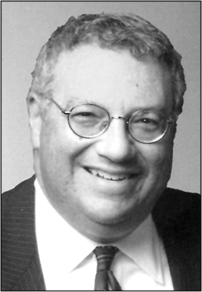
Alan Solow
|
Still most of Obama's Jewish supporters believe it is the Israel
issue, not racial politics, that may be keeping some Jews from endorsing
him. Alan Solow, a Chicago attorney, community leader and former chair
of the Jewish Community Relations Council who has known Obama for many
years, said he would like to put those fears to rest.
He has known Obama since both lived in Hyde Park and began actively
supporting him during his U.S. Senate bid. "Working on his behalf, I had
the opportunity to have many discussions with him on a wide range of
issues," he said. "I have always been delighted with the way he
approaches problems and I've become more impressed as time has gone on."
On the Israel question, Solow said Obama's entire public policy
approach, statements and votes "all consistently point to a position
that is very helpful to strengthening the relationship between the U.S.
and Israel. There isn't one single action or vote that anyone can point
to that would cast any doubt on what his position would be," he said.
Beyond foreign policy, Solow said, "I think his positions are much
more consistent with the vast majority of the Jewish community - the
right to choose, separation of church and state, social justice issues
generally. The Jewish community ought to be looking at those issues as
well." He said that although many Jews don't feel they know Obama as
well as they do Hillary Clinton or John McCain, he has a "long
consistent record" of pro-Israel support. "People should look at what
his record is and not say, we still don't know," he said.
On the question of inexperience, Obama's old friend Ira Silverstein
said, "Look, McCain has been around longer, but we've had President Bush
in there and he was a governor, the head of a major league baseball
team, and look at our economy. I've seen (Obama) work in the Senate.
I've seen him. He can bring people together. I know him personally.
Leadership? I can testify to it."
Another old friend, Rabbi Wolf, gives another kind of testimony. Obama, he says, is "embedded in the Jewish world."


















